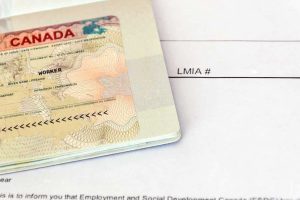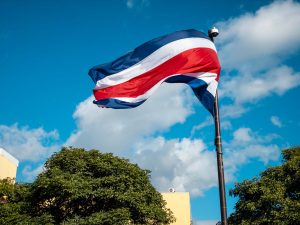Immigration Agencies in Canada and the United States: A comparison

Dr. Emily Johnson, a law professor at a Seattle university, ponders a complex question at her desk. Eager to compare immigration systems, she transitions from her lecture notes to online research, seeking credible sources. Dr. Johnson wants to understand how Canada and the US manage immigration and border security. Her goal is to incorporate this knowledge into her next class. With each click, she uncovers new insights and intriguing differences. She discovers that the US and Canada have distinct approaches and policies. Enthusiastically, she takes detailed notes, preparing to share her findings with her students. Through Dr. Johnson’s journey, we’ll explore the vital roles of immigration agencies in both countries.
The United States has several agencies dedicated to managing immigration. These agencies have specific roles but often collaborate to ensure a cohesive immigration system. Here is an overview of the primary US immigration agencies and their functions.
U.S. Citizenship and Immigration Services (USCIS)
USCIS manages lawful immigration to the United States. It processes visa and citizenship applications, handles asylum and refugee requests, and oversees the naturalization process.
U.S. Immigration and Customs Enforcement (ICE)
ICE enforces immigration laws within the US. It focuses on identifying and removing undocumented immigrants. ICE also investigates immigration fraud and human trafficking. Furthermore, it manages detention facilities.
U.S. Customs and Border Protection (CBP)
CBP secures US borders and ports of entry, inspects and admits foreign nationals, prevents irregular immigration and smuggling and safeguards agricultural and economic interests.
Department of State (DOS)
The Department of State (DOS) issues visas to foreign nationals at U.S. embassies and consulates abroad. It also handles diplomatic relations and supports international travel and exchange programs.
Executive Office for Immigration Review (EOIR)
EOIR conducts immigration court proceedings. The agency makes decisions on immigration cases. EOIR also handles appeals and detention reviews. Additionally, it ensures fair and timely hearings.
Department of Homeland Security (DHS)
DHS oversees several immigration-related agencies, coordinates national efforts to secure borders, manages emergency response and cybersecurity, and works to prevent terrorism and enhance public safety.
Other relevant agencies
Several other agencies can influence immigration policies. The Federal Bureau of Investigation (FBI) investigates immigration-related crimes. The Central Intelligence Agency (CIA) gathers intelligence on international threats. The Department of Labor (DOL) ensures foreign workers do not negatively impact US jobs. The Department of Health and Human Services (HHS) also handles health screenings for immigrants.
The interrelationship of these agencies
These agencies often interact to ensure the immigration system runs smoothly. They share information, coordinate enforcement efforts, and address national security concerns. This collaboration ensures a comprehensive approach to managing immigration in the United States.
Canada has several agencies dedicated to managing immigration. These agencies have distinct roles but often work together. Here is an overview of the primary Canadian immigration agencies and their functions.
Immigration, Refugees and Citizenship Canada (IRCC)
IRCC oversees immigration, refugees, and citizenship. It processes visa, permanent residence, and citizenship applications. IRCC also manages asylum and refugee programs. Additionally, it offers settlement services for new immigrants.
Canada Border Services Agency (CBSA)
CBSA secures Canada’s borders and ports of entry. The agency inspects and admits foreign nationals, enforces immigration laws and regulations, and prevents irregular immigration and smuggling.
Immigration and Refugee Board of Canada (IRB)
IRB conducts immigration and refugee hearings. The agency makes decisions on asylum claims and immigration appeals. IRB also handles detention reviews and admissibility hearings. Additionally, it ensures fair and timely hearings.
Employment and Social Development Canada (ESDC)
ESDC manages the Temporary Foreign Worker Program (TFWP) and conducts Labour Market Impact Assessments (LMIAs) to ensure foreign workers do not negatively affect Canadian jobs. Furthermore, it oversees compliance with employment standards.
Public Safety Canada
Public Safety Canada oversees agencies like CBSA and CSIS. It coordinates efforts to maintain national security, manages emergency response and public safety initiatives, and works to prevent terrorism.
Other relevant agencies
Several other agencies contribute to Canada’s immigration system. The Royal Canadian Mounted Police (RCMP) may be involved in investigations related to immigration enforcement. The Canadian Security Intelligence Service (CSIS) gathers intelligence on security threats that could impact immigration. Health Canada could conduct health screenings for immigrants. The Department of Justice (DOJ) provides legal support for immigration cases.
The interrelationship of these agencies
These agencies often collaborate to ensure a cohesive immigration system. They share information and coordinate enforcement efforts. IRCC and CBSA work closely on border security and immigration processing. ESDC and IRCC ensure that foreign workers meet the labour market needs. Public Safety Canada, CSIS, and RCMP address national security concerns. This collaboration creates a comprehensive approach to managing immigration in Canada.
Comparing US and Canadian immigration agencies
This table highlights the closest Canadian counterparts to US immigration agencies. It compares their similarities and differences to understand their roles clearly.
| US Agency | Closest Canadian Agency | Similarities | Differences |
|---|---|---|---|
| U.S. Citizenship and Immigration Services (USCIS) | Immigration, Refugees and Citizenship Canada (IRCC) | Both manage lawful immigration and process visa and citizenship applications. | USCIS is part of DHS; IRCC is a standalone department. |
| U.S. Immigration and Customs Enforcement (ICE) | Canada Border Services Agency (CBSA) | Both enforce immigration laws and conduct detention and deportation. | ICE handles broader enforcement within the US; CBSA focuses on border security and customs. |
| U.S. Customs and Border Protection (CBP) | Canada Border Services Agency (CBSA) | Both manage border security, inspect foreign nationals, and prevent illegal immigration. | CBP is part of DHS and has a broader mandate, including customs enforcement; CBSA deals with customs, enforcement and border protection. |
| Department of State (DOS) | Global Affairs Canada (GAC) | Both manage international relations and oversee embassies and consulates. | DOS handles a broader range of diplomatic matters; GAC focuses more on international relations and development. |
| Executive Office for Immigration Review (EOIR) | Immigration and Refugee Board of Canada (IRB) | Both conduct immigration hearings and make decisions on immigration and refugee claims. | EOIR is part of the DOJ and handles court proceedings; IRB is an independent tribunal. |
| Department of Homeland Security (DHS) | Public Safety Canada | Both oversee agencies responsible for immigration, border security, and national security. | DHS has a broader mandate, including cybersecurity and disaster prevention; Public Safety Canada focuses on emergency management and public safety. |
| Department of Labor (DOL) | Employment and Social Development Canada (ESDC) | Both manage foreign worker programs and ensure compliance with employment standards. | DOL focuses on labour certification; ESDC conducts LMIAs for foreign workers. |
Invite Al Parsai to Speak at Your Events.
I am deeply involved in Canadian immigration. I regularly share insights at events, demystifying complex immigration processes. If you’re looking for a speaker who can add value to your next event with practical immigration knowledge, I’d be glad to contribute. Please view my public speaking resume and consider inviting me to speak by filling out the following form. I look forward to potentially joining your event and giving your audience valuable insights.
Would you please fill out our free assessment form if you wish to visit or move to Canada? We will review it for free, but we will contact you only if we find an opportunity for you. Alternatively, you may book a consultation session. Consultation sessions are not free, but you will receive formal immigration advice from a licensed practitioner.
Al ParsaiAl Parsai, LLM, MA, RCIC-IRB
Regulated Canadian Immigration Consultant
Adjunct Professor – Queen’s University – Faculty of Law
Ashton College Instructor – Immigration Consulting
Author – 88 Tips on Immigration to Canada
Fill our Free Canada Immigration Assessment Form in your language!
 ‘ Credit:
‘ Credit:Original content by www.settler.ca – “Immigration Agencies in the US and Canada: A Comparison”
Read the full article at https://www.settler.ca/english/immigration-agencies-in-the-us-and-canada-a-comparison/









